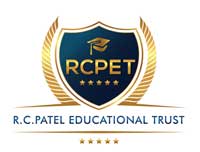Career Oriented Courses

Dr. Mahesh P. Patil
Central Co-ordinator
M.Sc. Ph.D. (Microbiology)
Cell : 7588735076/9881311395
Career-oriented courses are educational programs designed to prepare individuals for specific professions or industries. These courses aim to equip students with the practical skills, knowledge, and credentials needed to enter and succeed in the job market. Career-oriented courses often include practical’s, field work, or projects to provide real-world experience. They are offered to cater a wide range of interests and career goals.
The UGC during Xth Plan decided to recast the vocationalisation programme at undergraduate level under a modified scheme of CAREER ORIENTED PROGRMAME. The UGC has introduced a flexible system of certificate/diploma/advanced diploma programme, which run parallel to the conventional B.A., B.Com. and B.Sc. degrees. The Universities/colleges may formulate their own, ‘Need-Based’, Career-oriented courses. The syllabi as per guidelines of the UGC on the scheme of courses may be prepared by the universities/colleges on their own keeping in view the subject specific academic needs and market requirements, with the help of the subject experts. However, it has been noticed that these take a long time to get introduced on account of the delay in grant of approval by the statutory bodies of the University. This results in delayed utilization of allotted assistance, which is made available to the institution along with the sanction, besides depriving the students of the benefits of the scheme.
Objectives
1. Skill Development : To provide students with the technical and soft skills required for a particular career. This includes hands-on training, use of industry-standard tools, and development of problem-solving and critical thinking abilities.
2. Industry Relevance : To ensure that the curriculum is aligned with current industry standards and practices. This involves regular updates to course content based on market trends and employer needs.
3. Practical Experience : To offer real-world experience through internships, projects, and partnerships with companies. This helps students apply theoretical knowledge in practical settings and gain valuable work experience.
4. Career Readiness : To prepare students for the job market by offering career services such as resume building, interview preparation, job search strategies, and networking opportunities.
5. Certification and Accreditation : To provide recognized certifications and accreditations that enhance employability and demonstrate a certain level of proficiency and expertise in a field.
6. Lifelong Learning : To promote continuous learning and professional development. Career-oriented courses often encourage ongoing education to keep up with evolving industry demands.
7. Holistic Development : To support the overall development of students, including personal growth, communication skills, teamwork, and leadership abilities.
8. Employment Opportunities : To increase job placement rates by connecting students with potential employers and providing resources for job searches and career advancement.
9. Specialization : To allow students to specialize in a particular area within a broader field, providing in-depth knowledge and expertise that can set them apart in the job market.
10. Entrepreneurial Skills : To foster entrepreneurial thinking and skills, enabling students to start their own businesses or bring innovative ideas to existing organizations.
Career Oriented Courses List
| Sr. No. | Course | Course Code | Eligibility |
|---|---|---|---|
| 1. | Certificate Course in Bioinformatics | CCBI | 12th Pass (Science) |
| 2. | Diploma in Bioinformatics | DBI | Certificate in Bioinformatics |
| 3. | Advanced Diploma in Bioinformatics | ADBI | Diploma inBioinformatics |
| 4. | Certificate Course in Plant Tissue Culture | CCPTC | 12th Pass (Science) |
| 5. | Diploma in Plant Tissue culture | DPTC | Certificate in Plant Tissue culture |
| 6. | Advanced Diploma course in Plant Tissue Culture | ADPTC | Diploma inBioinformatics |
| 7. | Certificate course in Textile Chemistry | CCTC | 12th Pass (Science) |
| 8. | Diploma in Textile Chemistry | DTC | Certificate in Textile Chemistry |
| 9. | Advanced Diploma in Textile Chemistry | ADTC | Diploma inTextile Chemistry |
| 10. | Certificate Course in Ethnobotany | CCE | 12th Pass (Science) |
| 11. | Certificate Course in Consumer Electronics | CCCE | 12th Pass (Science) |
| 12. | Certificate Course in Latex for Everyone | CCLE | 12th Pass (Science) |
| 13. | Certificate Course in Commerce for Textile Industry | CCCT | 12th Pass(Science/ Commerce / Arts) |
| 14. | Certificate Course in Woman Study | CCW | 12th Pass Girls(Science/Commerce/ Arts) |
| 15. | Certificate Course in Literature and Life Skill | CCLL | 12th Pass (Arts) |
| 16. | Certificate Course in Behaviour Analysis | CCBA | 12th Pass (Science/Commerce/ Arts) |
| 17. | Certificate Course in Cultural Heritage of India | CCCHI | 12th Std. (Science / Commerce/ Arts) |
| 18. | Post Graduate Diploma in Bioinformatics | PGDBI | B.Sc. (Life Sciences) |
| 19. | Post graduate Diploma in Microbial Biotechnology | PGDMBT | B.Sc. (Life Sciences) |
Application for career-oriented courses
1. Fill Out the Application Form
- Access Form: Visit the institution’s website or the online platform and find the application form for the course.
- Personal Information: Fill in your personal details such as name, contact information, and address.
- Educational Background: Provide information about your previous education.
- Course Details: Specify the course you are applying for and any additional information required.
2. Attach Documents
- Upload Documents: Attach the required documents, such as educational certificates, ID proof, resume, statement of purpose, and letters of recommendation.
- Check Format: Ensure the documents are in the correct format (e.g., PDF, JPG).
3. Review and Submit
- Double-Check Information: Review all the information and documents to ensure accuracy.
- Submit: Submit the application form as per the instructions given (online submission or mailing the physical form).
4. Application Fee
- Pay Fee: Pay the application fee if required. This can usually be done either online through a secure payment gateway or offline through cash.
5. Confirmation and Follow-Up
- Confirmation: After submission, you should receive a confirmation email or message.
- Follow-Up: Keep track of any further communication from the institution regarding interviews, entrance tests, or additional information needed.
COC Admission Form
| Title | Download |
|---|---|
| COC Admission Form | Download |
